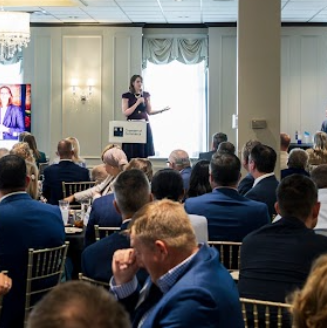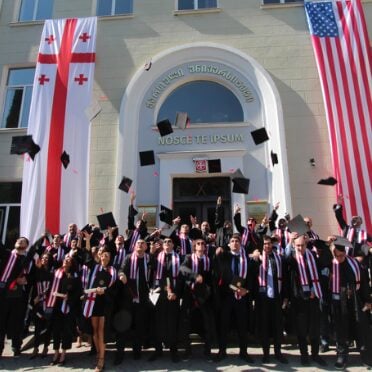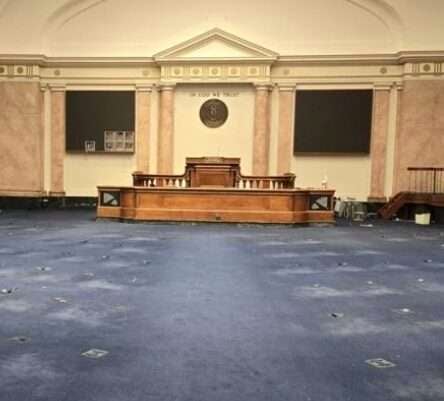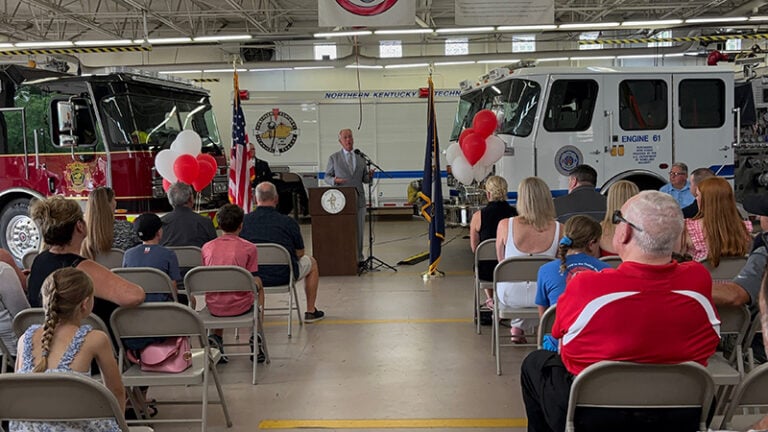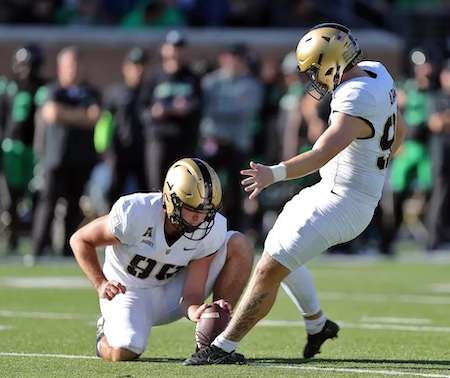By Russ Brown
Kentucky Today
Rick Pitino’s new memoir, “Pitino: My Story,” hit the bookshelves and internet booksellers’ websites this week, and it’s sure to receive a lot of interest and conversation from college basketball fans and the media.
In many ways, the overriding thread of the book isn’t surprising. The former Louisville coach continues to play the role of victim, as he has done in all three of the scandals he was involved in while at UofL, including the tawdry Karen Sypher affair.
And Pitino again excoriates his familiar whipping boys — the UofL board of trustees, NCAA, Papa John Schnatter, board chairman David Grissom, Justice Department prosecutors, and Gov. Matt Bevin, among others in a cast of many he claims have done him wrong.
There are no bombshells and little new about the scandals, just Pitino’s many opinions on various subjects and his version of events, such as how he learned about the stripper and FBI scandals. It’s his transparent effort to try and repair his reputation with an all-out attack on those he perceives to be his enemies.
About as close as he comes to self-analysis or awareness is this quote: “To outsiders looking in, I can see how I might easily appear to be a villain. If I only read the headlines, I would think I was a bad guy, too.”

Still, no matter what you think of Pitino, the book makes for interesting and entertaining (much like he is in person) reading.
As he says in the book, “My story is complicated and crazy.”
Having covered and written about Pitino during his entire career at Louisville, here are what I found to be some of the most interesting segments in the book:
HOW HE LEARNED ABOUT SCANDALS
Pitino describes how he found out about both the stripper/prostitution scandal involving Katrina Powell and the FBI investigation on corruption in college basketball that involved UofL.
Pitino said UofL sports information director Kenny Klein called him while he was coaching the Puerto Rican National team in late July of 2015 to tell him about the charges by Powell in a book.
As for the FBI case, Pitino said he was taping a podcast for former Yum! Brands CEO David Novak when Jordan Sucher, his executive assistant, came into the room and told him there was trouble. He informed his boss that the FBI had already intercepted two assistant coaches.
Pitino said he then met with Klein and compliance director John Carnes and that “everyone looked grim.”
As told by Pitino, here is how part of the conversation went:
”What the hell is going on?” I asked.
”They picked up two of your assistant coaches,” Kenny said.
”Who’s they?”
”The FBI.”
”The FBI? What are you talking about?”
”The FBI picked up Kenny Johnson in the parking lot right outside. And they picked up Jordan Fair at the airport.”
I was still totally in the dark. “What’s this about? Why did they get picked up?”
”Some type of sting operation.”
Within an hour, FBI agents also questioned Pitino, who spoke to them without an attorney present.

INSISTING ON HIS INNOCENCE
Pitino continued to insist he wasn’t aware of the actions of basketball staffer Andre McGee, who allegedly arranged the stripper parties, and Fair, who was implicated in an alleged payoff scheme to recruit Brian Bowen that became a subject of the federal probe.
”This may sound crazy, but I’m actually more upset with Jordan Fair than I am at Andre McGee. Andre’s actions were inexplicable and so out of character that I sometimes wonder if he was a sociopath or being blackmailed. I have no idea.
Jordan, on the other hand, was repeatedly taught to follow the absolute letter of the law with regard to recruiting regulations. So the fact that he met with a roomful of scam artists is completely infuriating. Was he led astray by con men? Quite possibly. But he should have never been in that situation in the first place.”
CRITICAL OF GOV. BEVIN
Pitino described Gov. Bevin’s replacement of Louisville’s board of trustees as “calculated and cynical” and said it was designed in part to get rid of athletics director Tom Jurich, who was unbending and passionate in his support of Pitino.
”Grissom and Schnatter had their marching orders (from Bevin). They were out to destroy Tom, destroy me, destroy the legacy of 16 years of great basketball and maim a thriving, growing institution.
”Why would Bevin load the University of Kentucky board with UK graduates, but stock the Louisville board with trustees who have no obvious connection to the school? Why name Schnatter, who is an openly partisan booster of the Kentucky Wildcats? Why appoint Grissom, chairman of a private investment firm, which advises big money clients, to run the board in a secretive manner?”
Pitino also noted that Grissom had previously spent “more than two decades as the board chairman at Centre College and has reportedly donated over $20 million to that school, a number that’s in sharp contrast to the $128,407 he had given to UofL as of January 2018.
”These new so-called ‘stewards’ of Louisville had absolutely no interest in establishing the truth, working with me, or defending the basketball program. It was clear they were not supporters of mine.”
AN INSULTING OFFER
Pitino, who is suing the UofL Athletic Association for breach of contract over his firing with cause, writes that he was incensed at a settlement offer of a $1 million donation to the Daniel Pitino Foundation honoring his son, who died in infancy. He called the offer “insulting”, adding that he believes it was orchestrated by Grissom.

A BLAST AT SCHNATTER
Pitino says that when he was hired as UofL’s coach in 2001, Jurich sent Schnatter’s Citation 10 jet, “an extremely fast plane,” for him so he would arrive in Louisville for his introductory press conference “before I had time to reconsider.”
”In the years to come. I would find out a lot about John Schnatter. . .Let me just say that knowing what I know today about him, including the fact that he would be instrumental in getting me fired, I would’ve jumped on a bus, taken a train, or walked rather than stepped on his plane. He’s made millions selling pizza. Other than that, I believe you’d be hard-pressed to find any noble qualities with a search warrant.”
At least Pitino didn’t refer to him derisively in the book as “Pizza Boy,” which he has done publicly in the past.
ON THE U.S. ATTORNEYS
Pitino is still fuming that although he has not been indicted or accused of breaking any laws, the FBI all but naming him in the initial report of its investigation contributed to his being fired by UofL.
”The lawyers of the Southern District used my name to generate big headlines and then, having blown up my life, left me to pick up the pieces.
”It’s a frightening story, to be honest, about a manufactured scandal, misplaced priorities, abuses of power and a mind-boggling lack of accountability. At this publication, nearly a full year has elapsed since the complaint was released that essentially ended my tenure at Louisville. The case remains ongoing, and many threads of the investigation have not yet been tied together publicly. Collateral damage — that’s how these prosecutors view the people who, for whatever reason, cross their paths? That’s the tragedy. You have no remedy because you can’t sue the government. You don’t have a court case in which you can vindicate yourself. In other words, I was screwed.”
HIS OPINION ABOUT UK
Pitino has long had a complicated relationship with the University of Kentucky, especially after he took the UofL job and began coaching against the Wildcats in the heated rivalry.
”Kentucky was Camelot,” he writes. “Louisville was real life. It was filled with ups and downs, great friendships and betrayals.”
Pitino said he believes Gov. Bevin replacing UofL’s board of trustees was politically motivated, rooted in his desire to relate to the popularity of UK basketball in the state.
Pitino said the love for the Wildcats among Kentucky sports fans “is rooted in any number of things: the dominance of UK basketball, the history of the state, racism and Kentuckians’ vision of themselves as rural folk as opposed to city slickers.”
Referring to racism, Pitino added that “the segregated past of Kentucky basketball still cast an ugly shadow on the school” and that the parents of some African-American recruits he tried to sign at UK “were dead set against their sons playing at Rupp Arena.”
WHETHER HE WILL COACH AGAIN
Pitino wrote that he had been unsuccessful in attracting attention from NBA teams since his firing a year ago in October and that colleges would be reluctant to hire him because the FBI investigation is still ongoing and an NCAA probe won’t start until the federal case is resolved.

”Since leaving Louisville, my agent has reached out when NBA openings have surfaced,” he said. “We couldn’t even get an interview. I can’t blame the general managers who turned me down. Louisville fired me so abruptly, it instantly created the impression that I must be guilty of something.”
He doesn’t address the possibility of eventually getting back into college coaching after the smoke clears, although a recent CBS poll of coaches nationally found that 54 percent believe he will wind up guiding a college team again at some point.
For now, in addition to a previously announced podcast, he says he plans to work with about 20 college programs as an adviser and consultant. Those programs will donate to the Daniel Pitino Foundation and pay his travel expenses.
”All I’m interested in doing right now is motivating young athletes and programs and coaches, try to help them out,” Pitino says. “And try to stay active in the game that way. I try to say, ‘What can I give to college basketball?’ Because I love the game. What can I do to still educate young people.”
THE END
Near the end of the book, Pitino writes: “I don’t want to create a never-ending bitterness. It’s time to let go. It’s judgment time. I’ve told the truth in this book. Now the big questions are whether Andre McGee, Jordan Fair or the people facing trials and possible jail time will tell the truth.”
Then on the final page of the book, he says: “The truth will set you free.”
It’s up to readers of the book, of course, to determine whether they believe Pitino is telling the whole truth and nothing but. . .
Russ Brown, a former sportswriter for The Courier-Journal and USA Today, covers University of Louisville sports and college basketball and football for Kentucky Today.







